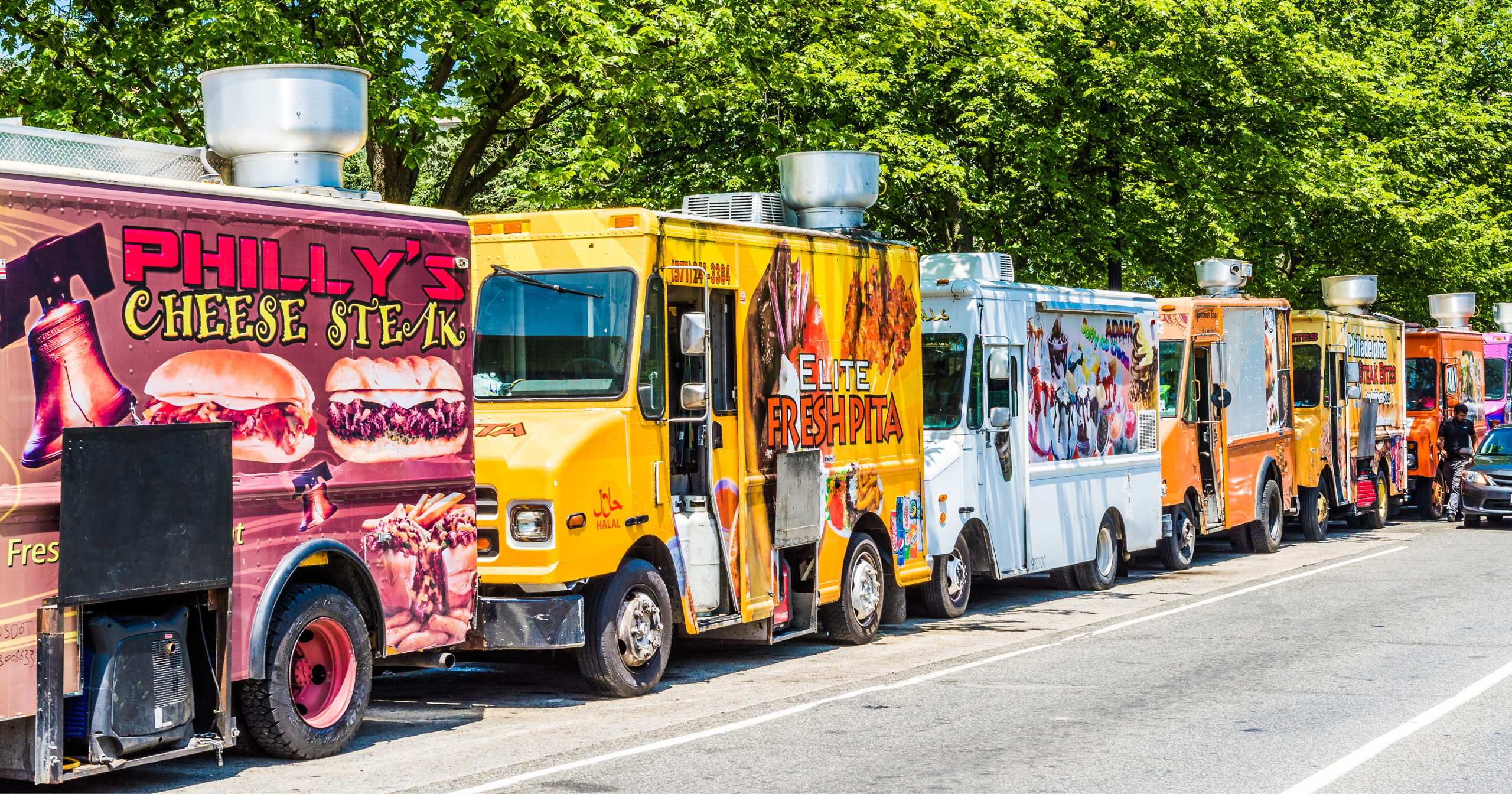Food Truck Permits: What to Know and How to Get Them

In today’s modern world, technology has allowed people to have the freedom to start new businesses in a creative and limitless way. One of the most popular modern forms of this is the food truck. With a history dating back to the Texas chuckwagon in the late 1800s, food trucks have become increasingly popular since the 2010s, with gourmet chefs even trying their hands in the limited space kitchen setting. Seen as a respectable way for aspiring chefs to launch their careers, trucks serving upscale cuisine can be found in cities nationwide.
Reading this article, you may be curious yourself about how to open a food truck yourself. Surely there must be a monstrous stack of permits and paperwork to go through to serve food in public places? Sounds intimidating! Luckily, Permit Advisors has helped upstart entrepreneurs with their budding food trucks for over a decade, and we have the knowledge to help you open yours.
WHAT WILL I NEED?
Business License
First, you are going to need to get a business license. This allows you to run a business in your current city and state. Receiving a business license means that your public authority recognizes your operation as a genuine business and can appropriately track your revenue/expenses for tax purposes. The cost to buy a food business license can range anywhere from $50 to $500, but keep in mind that application prices and terms may vary on your jurisdiction.
Also, some towns limit the number of licenses they give to mobile food vendors. The council will either put names in a random lottery or pit the businesses against each other to choose. Be sure to apply as soon as possible just in case.
Valid State Driver’s License
To drive a food truck, you will need a standard state driver’s license just as you would for any other vehicle. Registration for your truck is also mandatory, as well as the proper insurance. In most states, a standard driver’s license is suitable, but in some a commercial driver’s license may be needed depending on the size of your truck.
Employer Identification Number
Since this will be a legitimate business, you may have employees to oversee and pay. An Employer Identification Number (or EIN) is a federal tax ID number that registers your business with the IRS. With it, you can open a business bank account, create a credit profile, and hire employees. Some states provide this number to you when you receive a business license, but in other, you may have to apply for it yourself through the IRS.
Food Handlers Permit
A food handler’s permit, also known as “food handlers license” or “food manager certificate” is granted to those who complete food handler training and a food safety course. In most states, only the manager-on-shift is required to obtain the permit. Other states call for one or more employees to always have a valid permit if food is to be handled, prepared, cooked, or stored on the premises. The permit provides customers with the peace of mind that your food truck staff is knowledgeable and skilled in sanitary and safe food-handling strategies.
The cost for a food handler’s permit is typically cheap at less than $50 and is valid for approximately five years.
Seller’s Permit
This might not be required in all states, but in some, a seller’s permit is needed to be able to buy products (such as ingredients or supplies) at wholesale prices. The permit allows you to also skip out on paying sales tax, which for a small business owner can easily add up to a lot of savings.
Parking Permits
Since you will be parking a large food truck in the middle of your chosen city, researching the appropriate parking permits is recommended. Usually, the local county clerk will have the answers and information regarding this subject. Some streets are forbidden for parking, especially commercial trucks, so be sure to be incredibly careful when planning out that day’s route.
Special Event Permit
This permit may also be called a “vending permit” and it is a temporary permit that allows you to sell your food at a specific venue location during an event. Depending on the event, a venue coordinator working for it will typically inform you about the appropriate permits needed to serve there. Since it is a popular way to get your business in front of many people, looking into various sporting events, festivals, or concerts in your area can be a successful way to gain foot traffic on a large scale.




